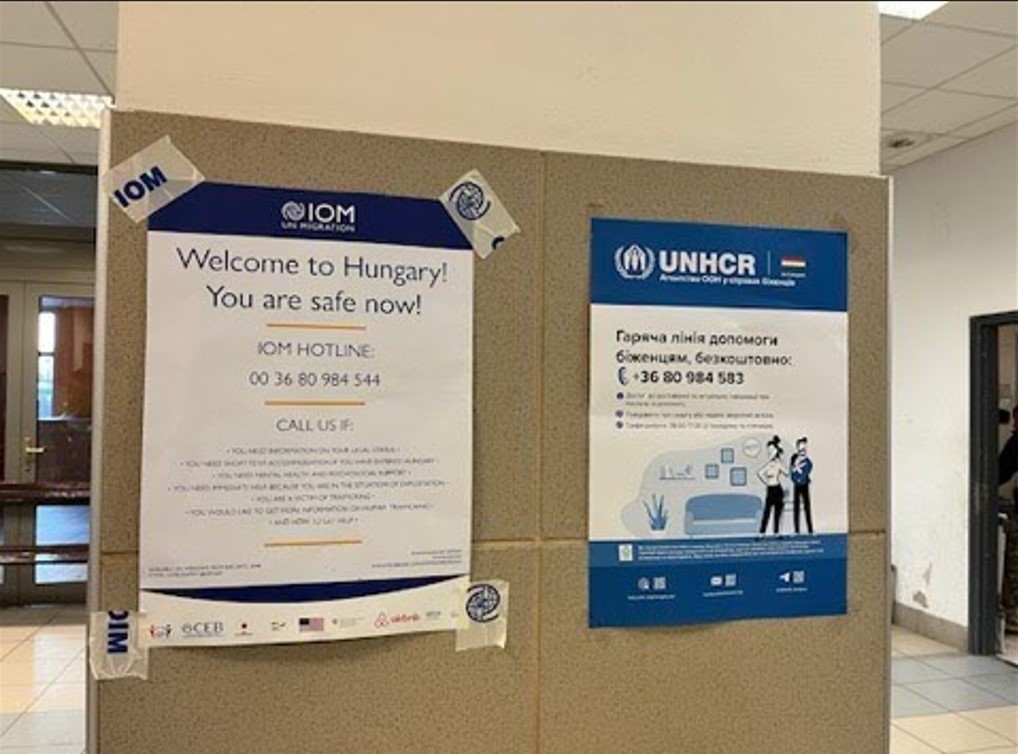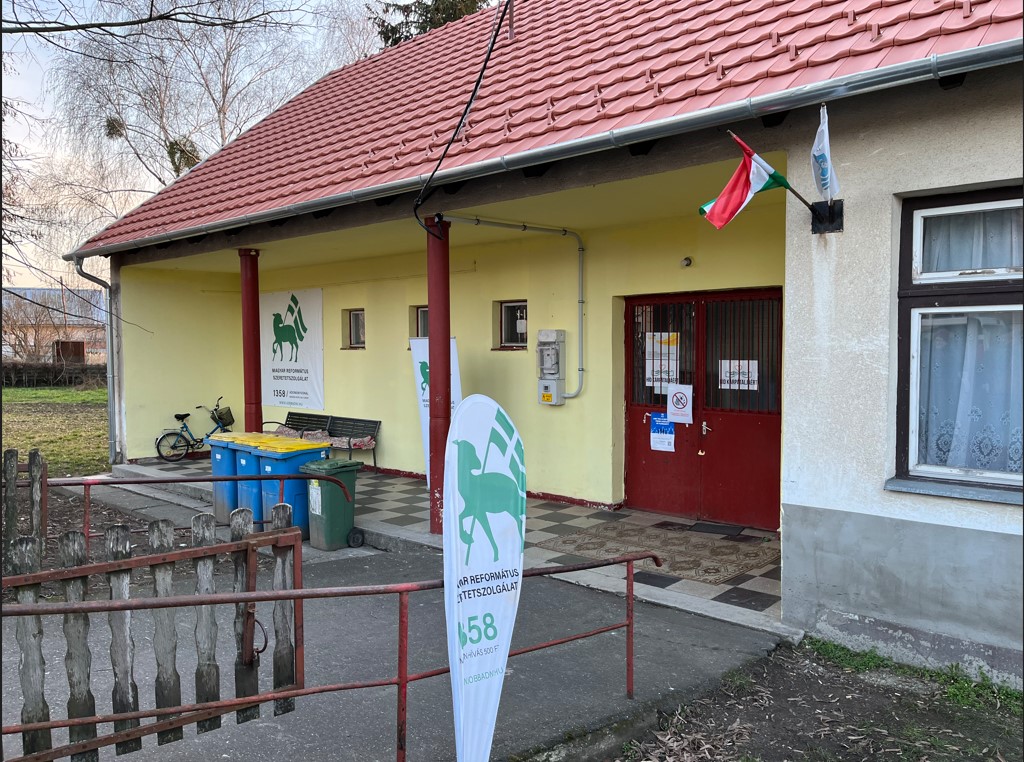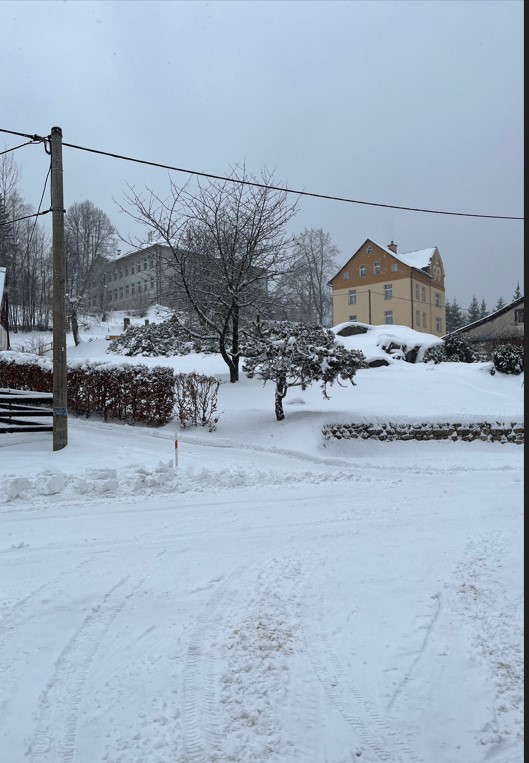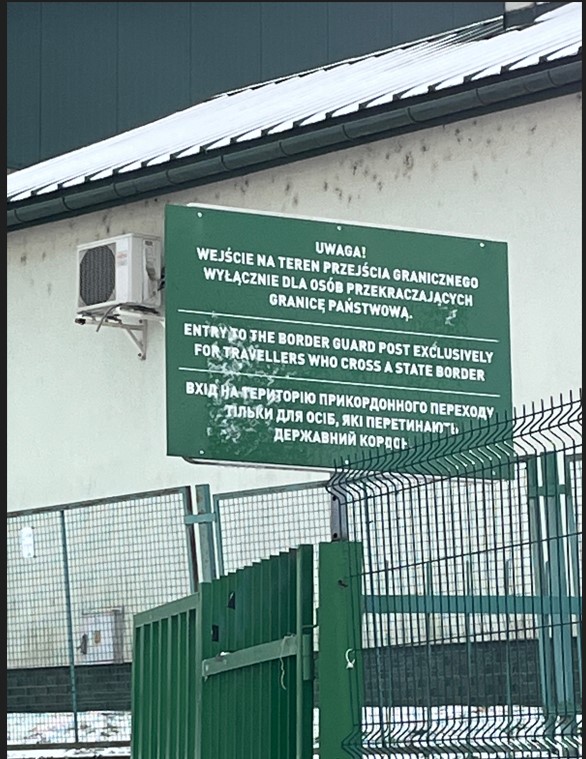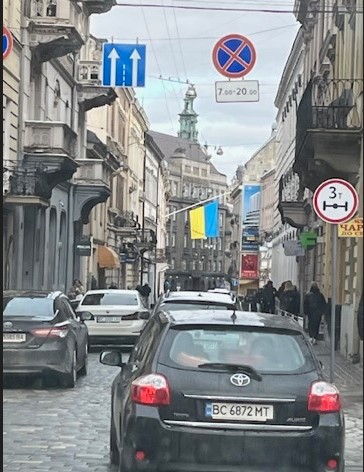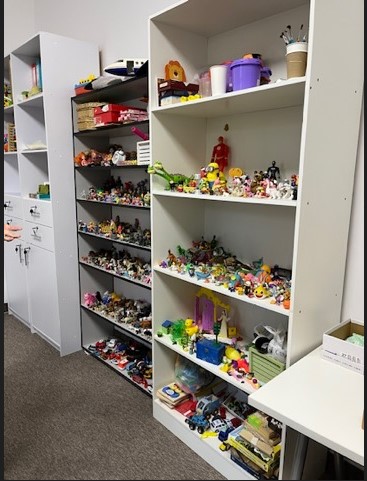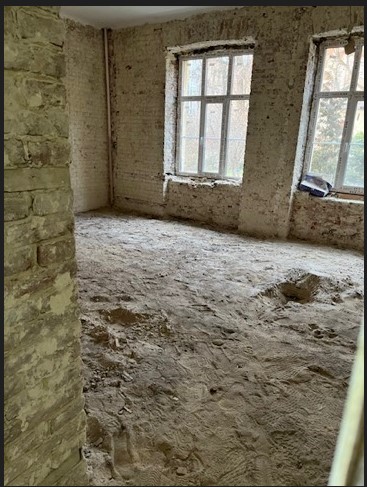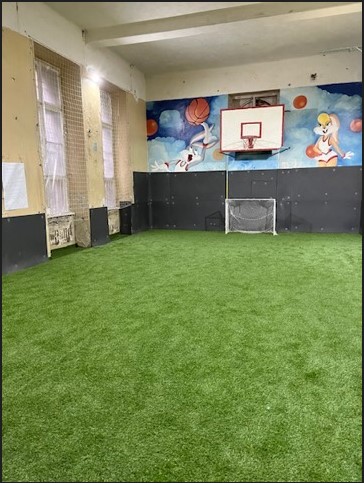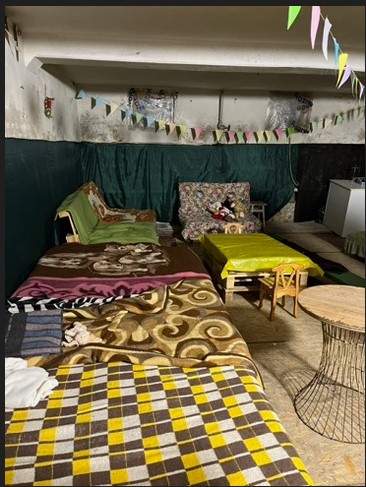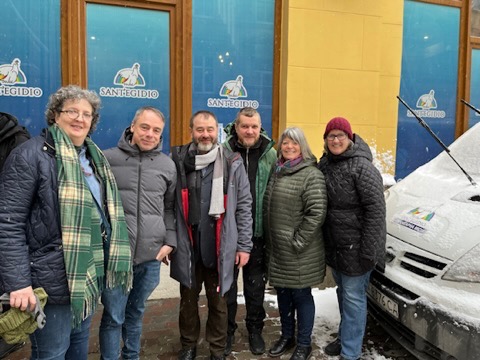An update from Ellen Smith, mission co-worker serving in Russia, Belarus, Ukraine and Poland
Spring 2023
Individuals: Give online to E132192 in honor of Ellen Smith’s ministry
Congregations: Give to D500115 in honor of Ellen Smith’s ministry
Churches are asked to send donations through your congregation’s normal receiving site (this is usually your presbytery)
Greetings from Eastern Europe,
Four of us, including Laurie Kraus, director of Humanitarian and Global Ecumenical Engagement, Susan Krehbiel, associate for Migration Accompaniment Ministries, Luciano Kovacs, area coordinator for the Middle East and Europe and I, began a trip across Eastern Europe to explore the situation with Ukrainian refugees during the last week in January. It is one thing to communicate over Zoom and email, and quite another to visit partners and projects face to face. It has been a privilege.
We began in Hungary. The numbers entering Hungary were nearly overwhelming in the early months after the invasion but many worked together to care for people in the crisis – meeting them at trains coming across the border, providing them with information, warm meals, temporary accommodations, and assistance to move on to Budapest, other points in Hungary and on into other parts of Europe. In conversations with our partners, the Hungarian Reformed Church, Hungarian Reformed Church Aid, and Hungarian Interchurch Aid, we heard reflections on the war, the current situation for refugees, the challenges, and the efforts at integration. The Ukrainian government their people fully integrated into other countries because they wanted them to return to Ukraine, but almost a year into this war, it is impossible for Ukrainians not to integrate. By law, children must attend school, though many are studying online at Ukrainian schools. Some attend Hungarian schools and study online. The internet connections from Ukraine are challenged by the damage to infrastructure (which includes electrical power stations). Parents want to work and language acquisition is critical. Hungarian is a Finno-Ugric language, a completely different language group from Ukrainian or Russian, but many of the refugees coming to Hungary are from the Transcarpathian region of Ukraine, which is Hungarian speaking. Of the thousands that crossed the border into Hungary, perhaps the majority have moved on to countries that have more compatible languages, where they might have relatives and friends or they have returned to Ukraine. Psycho-social support is a critical need at this point and the partners are using Ukrainian psychologists to address it. There is a need for more social workers and more psychologists. Many are stretched thin by the enormity of the need and the work. The commitment is unquestionable.
We moved on to Czechia and to visit with our partners – the Evangelical Church of the Czech Brethren. Though not a bordering country to Ukraine, Czechia has received more refugees per capita than any country in the European Union (EU). Prague became overwhelmed by the influx of refugees and it was necessary to shift people to other parts of the country. The desire of the adults to work made some locations less desirable. Many of the refugees are from big cities in Ukraine, so adjusting to small city or village life has not been easy. We had the opportunity to travel to the mountains of Czechia and the village of Josephus Dul, where some of the refugees have been accommodated. It is a beautiful location and was covered with snow on the day of our visit. It is a winter resort location, but it is small and employment is limited. Some families adjust better than others, but it is not just the Ukrainians that are caught up in the crisis. We visited the local school and chatted with the principal. It is stressful for the teachers to have many Ukrainian children in their classes who do not yet speak Czech. It is challenging to integrate without a common language between students and there are issues of trauma. The Czech Brethren are finding some important ways to help the refugee families. For many mothers who had the support of their own mothers for childcare in Ukraine, having sole care of their children and no job can add to depression and other struggles. A Czech woman fluent in Ukrainian and familiar with the culture of Ukraine has added new components to their ministry. She has listened to the children and found out what kinds of outside activities they used to have in Ukraine (music lessons, art lessons, sports, dance, etc.) and makes an effort to find such activities for them in the communities they have come to. She has begun organizing monthly outings for the mothers to Prague and other places in Czechia. For the mothers, it is a wonderful respite to feel like a tourist for a day, rather than a refugee. They have found a Ukrainian speaking psychologist that they are using to help both parents and children. It is the beginning of a new program.There are similar concerns for both children and adults and similar foci on outreach to refugees in Poland, where we visited with the Polish Lutheran Church and the LWF.
Our visit to Ukraine, and the city of Lviv near the border of Poland, was sobering. We traveled by train to Przemysil, taking a taxi to the border, walking across through a Polish border checkpoint and a Ukrainian border checkpoint, a mile and a half up hill. The Community of had sent a van for us, and Timur was waiting for us at the exit point. As we drove, he pointed out where two polygons (firing ranges) are located. They were shelled in the early days of the war, killing many young recruits. Now the shelling targets infrastructure like electrical power stations. Such places are bombed, repaired and bombed again, disrupting the lives of people in Lviv and other cities in Ukraine. Most of this shelling comes from Belarus. The center of the city has not been attacked, so, though there were air raid sirens, we did not feel at great risk. Bomb shelters were always nearby.
In Lviv, we visited two partners. The Ukrainian Educational Platform (UEP) introduced us to the HUB, a mental health center focusing on psychosocial care and spiritual care. The HUB has a day care for children with disabilities, as well as a program for teens and they are engaged in counseling with children and adults, including online sessions. The building is old and much of it is in desperate need of renovations, but they have managed to create beautiful spaces. They have a bomb shelter in the basement for the children, whenever the alarms go off, complete with places for the children to nap and play. They have put in an indoor soccer gym and have a worshipping space as well. The lead psychologist is currently teaching classes for seminarians to help them identify trauma and mental health issues. Two priests are part of the team at the HUB. The partnership between psychologists, social workers and clergy is important.
Also in Lviv, we spent time with the Community of Sant’Egidio and its director, Yuriy Lifanse. They have developed a program for care for Internally Displaced Peoples (IDPs) that have come to Lviv, those passing through en route to borders and those caught in the war zone and occupied territory. For a time, they were sending trucks with food, medicine and hygiene items to the gray zone around the active war zone, but it has become too dangerous, so they are sending packages with needed items. They maintain four warehouses in the Lviv area, for food, clothing, equipment and medical supplies. One of the warehouses is kept in reserves in case an emergency response is needed. They have a center that people can register online to visit for legal help, food support, housing or a shoulder to cry on. There are lots of tears. The center uses Ukrainian volunteers that rotate throughout each week. Housing in Lviv itself is very expensive and insufficient, so they are finding spaces for people in villages around Lviv where there are many empty homes. They know the statistics about IDPs often better than the government and work tirelessly to meet the overwhelming needs. Yuriy shared that he has learned to argue with God using the psalms.
Ellen
![]() You may freely reuse and distribute this article in its entirety for non-commercial purposes in any medium. Please include author attribution, photography credits, and a link to the original article. This work is licensed under a Creative Commons Attribution-NonCommercial-NoDeratives 4.0 International License.
You may freely reuse and distribute this article in its entirety for non-commercial purposes in any medium. Please include author attribution, photography credits, and a link to the original article. This work is licensed under a Creative Commons Attribution-NonCommercial-NoDeratives 4.0 International License.
